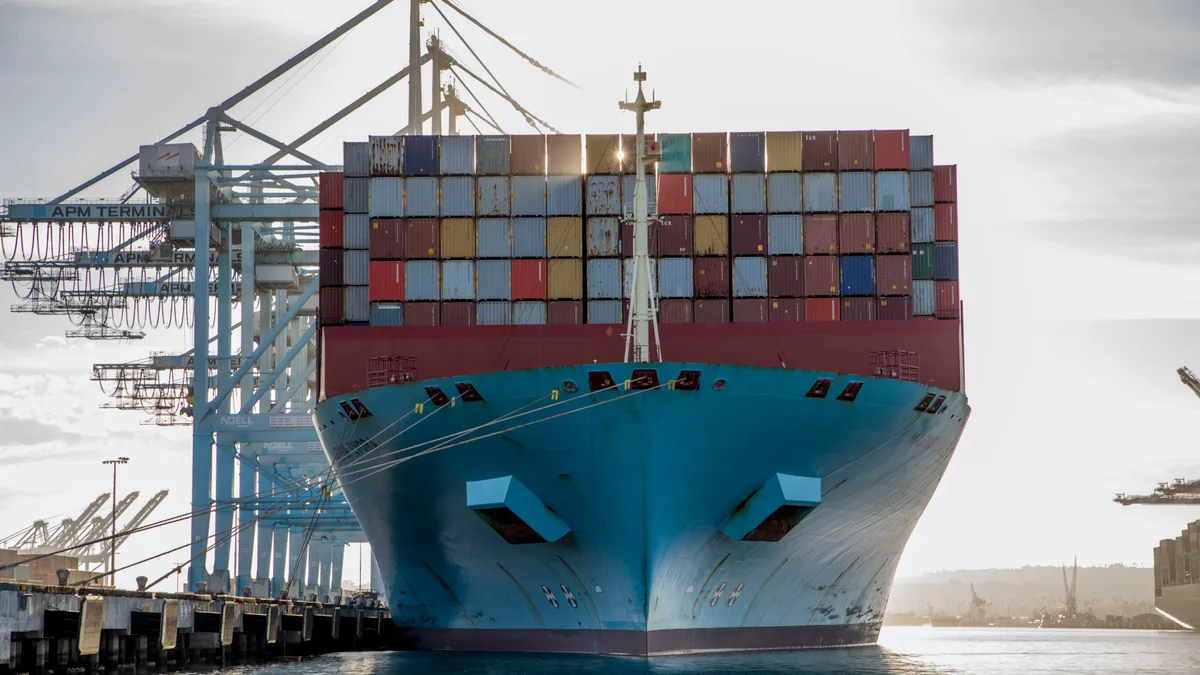Dive Brief:
- The International Maritime Organization sulfur regulations going into force next year (commonly known as IMO 2020) are a "major risk" to containership supply, according to Drewry.
- Switching to a new fuel to comply with the regulations will add $11 billion in expenses to carriers' balance sheets. The level of supply disruption in the space will depend on the carriers' ability to find a way to offset these costs, the maritime research agency said this week.
- "Our working assumption is that carriers will have more success in recovering that cost than previously, to the point that there will be no major disruption to supply," Simon Heaney, the senior manager of container research at Drewry, said in a statement. "However, if they fall short by a significant margin we think that lines would quickly dust off the decade-old playbook that was used to see them through the global financial crash."
Dive Insight:
This playbook, according to Drewry, could consist of a combination of slow-steaming, more blank sailings, and off-hiring of chartered vessels that all result in lower capacity.
These are measures similar to those taken in 2018 when the ocean shipping market suffered from overcapacity and carriers used blank sailings (canceled trips) to reduce short-term supply, according to the freight forwarder Flexport.
Drewry has downgraded its outlook for the world container port throughput for the year, saying it should increase 2.6% this year instead of the previously forecast 3%.
If carriers are unable to recover the cost of new fuel sources, they will likely have more ships outfitted with scrubbers to allow them to continue to use cheaper, high-sulfur fuel, Drewry said.
Carriers started announcing new fuel surcharges as early as last year, though some have warned these might not be high enough to offset costs. These surcharges will vary depending on the carrier and the trade route, according to the logistics company BDG International.
Maersk CEO Søren Skou said on the company's latest earning's call in August the carrier had been "very successful in terms of getting fuel adjustment clauses into all contracts. We are right now at 90% coverage on that," he said.
IMO Secretary-General Kitack Lim said in a September speech he is confident the transition to the new regulations " will be managed smoothly."














